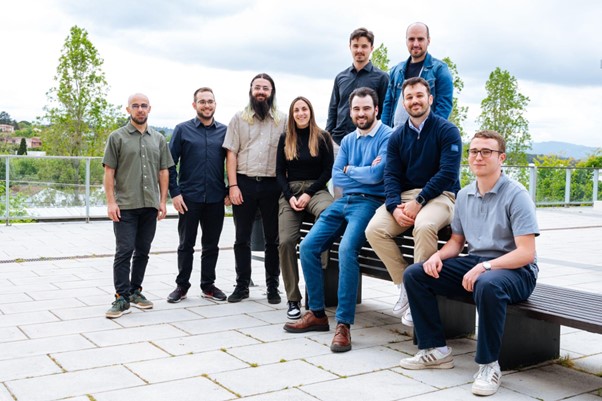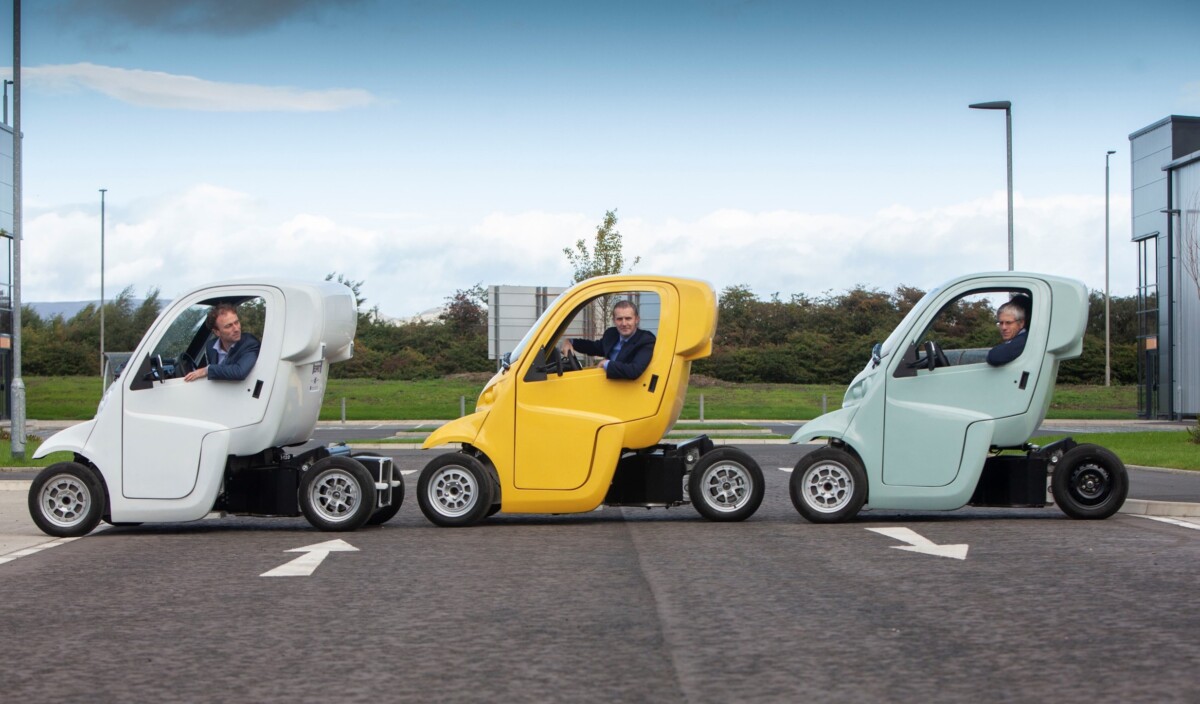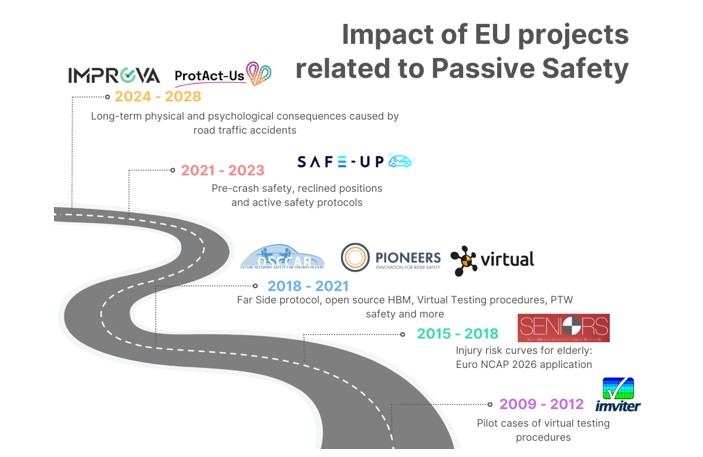Success Stories:European automotive research projects
The EARPA community has contributed immensely to the European automotive research sector and the impact of the research can be seen on our roads today. Below is a list of success stories from EARPA members, which focus on products or personal stories related to European projects in the automotive sector.
The success stories showcase the importance of funding R&I programmes which are contributing to new regulations, testing procedures, careers of people. Additionally, personal stories of professionals whose careers have been influenced by European projects.

Noise and vibration in eco-efficient powertrains:H2020 ECODRIVE Project
The project focuses on developing technologies for safer, cleaner, and quieter vehicle powertrains. This project provided research exercise to early-stage researchers, contributing to developing future noise, vibration, and harshness.

Particulate Traps with Catalytic Coating : IPSY Project
The FP6 project IPSY (2007-2009) worked on catalytic coating of Diesel particulate traps having in mind the future Diesel engine operating partially in HCCI (Homogeneous Charge Compression Ignition) mode and efficiency increasing in a way that low exhaust temperatures would make it difficult to regenerate the particle filter on the one hand side and controlling NOx on the other.

Advancing road safety through collaboration: ASSESS Project
Over the past decade, European collaborative research projects have played a pivotal role in driving the implementation of Advanced Driver Assistance Systems (ADAS) in vehicles on our roads. Through significant investments and efforts, these projects have fostered innovation, gathered vital data, and established standardized methodologies – all of which have contributed to enhancing road safety across Europe and beyond.


Advancing shared inclusive mobility: ESPRIT Project
This collaborative research project has enabled the emergence of a new shared mobility system. It enabled to deliver cheaply vehicles upon request of a user, or by making possible to balance the fleet of vehicles by resupplying empty carsharing stations in a cheap way

Advancements in electric vehicles (EV) technology, standards and collaboration: The ACHILES Project
The global shift toward electric vehicles is driven by environmental concerns, economic competitiveness, and the promise of smarter mobility. Despite significant progress, the deployment of EVs faces technological and regulatory barriers. The Achiles project (2018-2022), led by Vrije Universiteit Brussel (VUB), aimed to overcome these challenges and successfully improved EV technology.

Impact of the European Research projects on Passive Safety
Since the 1960s, passive safety systems have been progressively introduced into vehicles, beginning with the enhancement of passenger compartments and safety cages. The 1970s saw the addition of safety belts and crumple zones, followed by head restraints, frontal airbags, and side impact protection in the 2000s. These advancements have contributed to a significant reduction in road fatalities over the decades.
